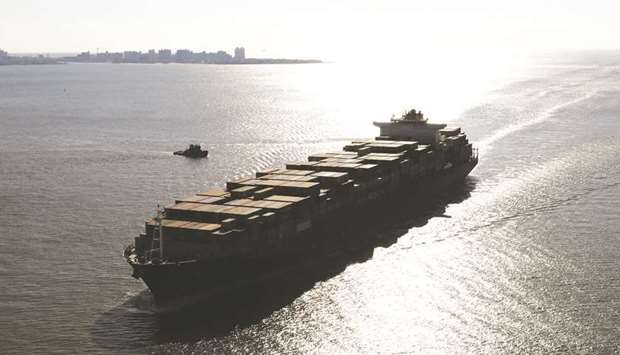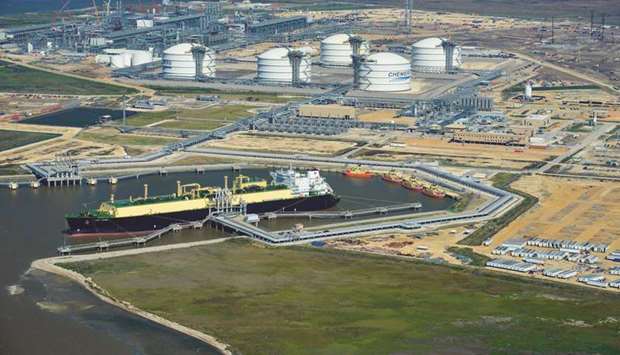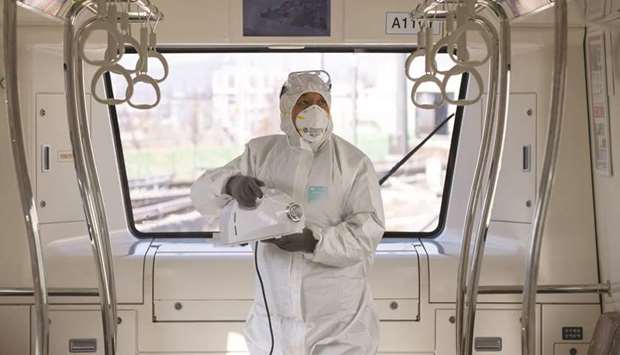Column: Even before price plunge, hedge funds were abandoning oil

LONDON (Reuters) – Even before the OPEC+ output agreement broke down on Friday, sending oil prices into a tailspin, hedge funds had launched a second wave of oil-related selling and established one of the most bearish positions since the price crisis of 2014-2016.
Hedge funds and other money managers sold the equivalent of 133 million barrels in the six most important petroleum futures and options contracts in the week ending on Tuesday.
Funds were sellers of Brent (60 million barrels), NYMEX and ICE WTI (31 million), U.S. gasoline (25 million), U.S. diesel (4 million) and European gasoil (12 million).
Over the last eight weeks, portfolio managers have sold a total of 579 million barrels, more than reversing purchases of 533 million in the final quarter of 2019.
The hedge fund community’s overall long position had been slashed to just 392 million barrels by March 3, down by 60% from 970 million at the start of the year, and the lowest since the start of 2019.
Fund managers have a in-built bullish long bias: they have never held a net short bearish position at any point in the last seven years, according to an analysis of data from regulators and exchanges.
But the data can be adjusted to remove “structural” elements from long and short positions (the minimum number of long and short positions which never change) to show the underling “dynamic” position more clearly.
On March 3, portfolio managers had a dynamic position that was net short by 99 million barrels, the most bearish since the start of 2019 (tmsnrt.rs/38xhDyp).
Overall, funds now hold just two bullish long positions for every bearish short, down from a ratio of almost 7:1 at the start of the year, and among the most bearish ratios at any point in the last seven years.
Portfolio managers have become especially negative about the outlook for distillate fuel oils such as diesel and gasoil, the refined products most closely connected with the business cycle.
Unusually mild winter weather throughout the northern hemisphere has cut heating oil consumption; now the coronavirus epidemic threatens an extended slowdown in global manufacturing and trade.
As a result, funds’ long-short ratio in middle distillates has fallen to just 0.7:1, compared with 2.4:1 in crude and 5.3:1 in gasoline.
Funds are more bearish on distillates than at any time since the global economy was still struggling to emerge from the commodity slump and mid-cycle manufacturing slowdown of 2015/16.
These bearish positions in crude and fuels had all been established before Saudi Arabia and Russia failed to agree on extending and/or deepening their output cuts at the OPEC+ meeting on Friday.
The combination of unrestrained production and weakening consumption has sent Brent prices down by a further $16 per barrel (31%) since Tuesday as investor sentiment has soured on the economy and oil even further.
Since Friday, Brent prices have experienced their sharpest one-day fall since U.S. forces moved to end Iraq’s occupation of Kuwait in January 1991, as traders respond to the unexpected collapse of the OPEC+ supply accord.
With Russia and Saudi Arabia now likely to lift output cuts and produce at their maximum capacity, prices will adjust down to the level set by the marginal producer, which in the last five years has been U.S. shale.
Related columns:
– Hedge funds paused oil sales, before coronavirus prompted second wave of selling (Reuters, March 2)
– Oil traders price in coronavirus-driven recession (Reuters, Feb. 28)









BRUSSELS – The spread of the COVID-19 coronavirus across Europe and the United States has led to a sharp financial-market correction and prompted calls for active monetary and fiscal policy to prevent a recession. But a closer look suggests that such an approach might not help much at all.
The COVID-19 epidemic is marked by uncertainty. Technically, it does not represent a “black swan” event, because there have been other pandemics before. But it was, until a few months ago, unforeseeable, at least in specific terms. And it will have a long-lasting impact even if its precise evolution cannot be predicted today.
For now, it seems that the virus is moving westward. In China, where the virus emerged, infections are declining after the authorities implemented radical measures – including lockdowns that brought the economy to a standstill for over two weeks. Although it is too early to tell whether the virus has really been contained, economic life now seems to be normalizing gradually, implying that the “China shock” may be unwinding.
In the US and Europe, by contrast, the shock seems to be just beginning, with a fast-growing number of new infections raising the specter of severe economic disruption. This risk is particularly pronounced in the eurozone, which may not be able to weather a severe downturn without spiraling into crisis.
To be sure, the epidemic’s direct fiscal consequences seem manageable. Even Italy, which is currently suffering the most, could increase public spending for virus-containment measures without violating EU fiscal rules.
If these costs spiral – as seems likely, now that a quarter of the country, accounting for most industrial and financial activity, is under lockdown – the European Union should be able to offer support to Italy beyond allowing the government to run a larger deficit. Article 122.2 of the Treaty on the Functioning of the EU allows the European Council to grant financial assistance to a member state facing “severe difficulties” caused by “exceptional occurrences beyond its control.” This procedure should be activated now.
In any case, COVID-19’s trajectory suggests that it will likely spread farther, forcing other EU member states to adopt public-health measures at the expense of economic activity, particularly in important sectors such as travel and tourism. Moreover, supply chains will be impaired, not only by the temporary shutdown of the Chinese export machine, but also by disruptions within Europe. Neither interest-rate cuts nor new government expenditures would do much to offset the short-term effects of such shocks.
The more serious problems are likely to emerge from the financial system. While many firms can slash production quickly, running a business in “disaster recovery mode” still costs money, and debt still comes due. In Europe, where labor costs cannot be cut in the short run, the challenges this raises could be particularly serious.
Fortunately, most EU members have some system in place under which the government covers the wages of workers who become temporarily redundant for reasons outside of their employers’ control. These mechanisms, which would sustain personal incomes during the crisis, are the main reason why a long-lasting drop in consumption is unlikely. Once the virus is contained, European consumers will have little reason not to spend as much as before.
Yet two other possible developments could tip the eurozone into recession. The first is a sharp slowdown of global trade, which the EU has little power to counter. The second is a collapse in investment, which the EU can and should work to prevent.
The last eurozone crisis demonstrated that investment collapses when the financial system stops functioning. In market-based systems, like that of the US, this is a question of risk premia and plain access to credit, which policymakers can hardly influence. For Europe, with its bank-centric financial system, the key to weathering the COVID-19 crisis is thus to keep the banking sector healthy.
For that, a calibrated supervisory response is essential. The shift of banking supervision to the European Central Bank has led to more rigorous and selective credit policies by commercial banks. While this has reduced banking risks, applying tough lending standards at a time of severe economic stress caused by public-health measures could punish otherwise creditworthy firms that are facing temporary losses.
Italy’s government is providing direct financial support to companies directly affected by the lockdowns. But if the crisis spreads, the number of sectors that are affected (often indirectly) will increase. Governments cannot provide financial support to all of them. Banks can do much more, but only if they are willing to overlook bad financials. Supervisors should allow – and even encourage – such an approach.
A forbearance-based approach – together with the “automatic” fiscal stabilizers built into Europe’s social-security systems – would do far more to mitigate the risk of crisis than microscopic interest-rate cuts.
Additional fiscal stimulus, meanwhile, would be needed only in the unlikely event that the economic disruption is followed by a period of depressed demand. The eurozone’s fiscal rules pose no obstacle to such a policy mix, because they are flexible enough to permit temporary deficits that result from lower tax revenues, or fiscal support to sectors hit hard by exceptional circumstances. Nonetheless, the COVID-19 epidemic should serve as a reminder of the value of maintaining prudent fiscal policy during normal times. Countries with lower deficits and debts are in a much stronger position to respond to the COVID-19 shock than those, like Italy and France, that have not created fiscal space.
In the face of a severe shock, public authorities must act – and be seen acting. But, in this case, the usual macroeconomic instruments are unlikely to work. Central banks and government authorities should explain this to the public, and then focus their attention on the less glamorous work of safeguarding public health, household incomes, and the financial system.